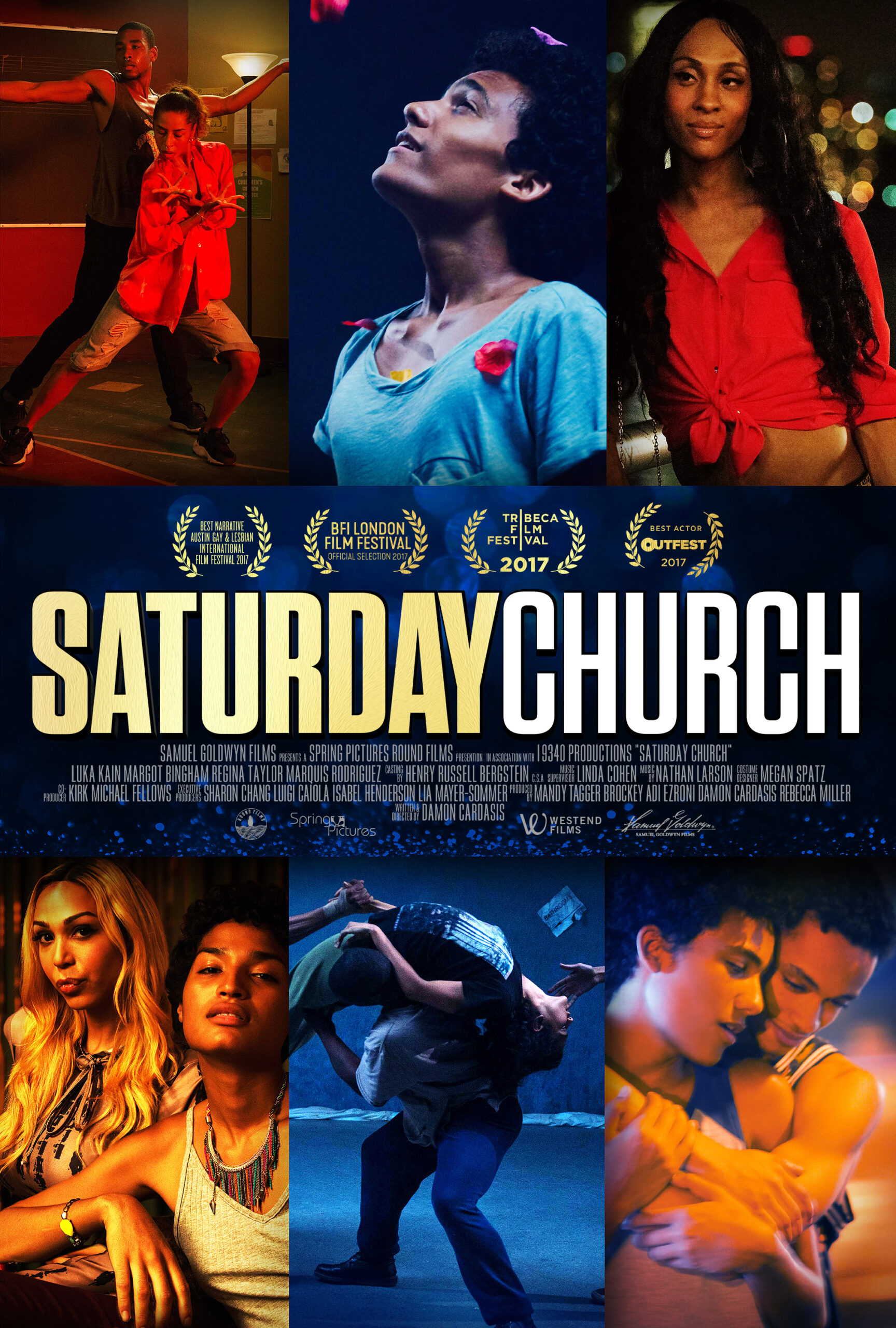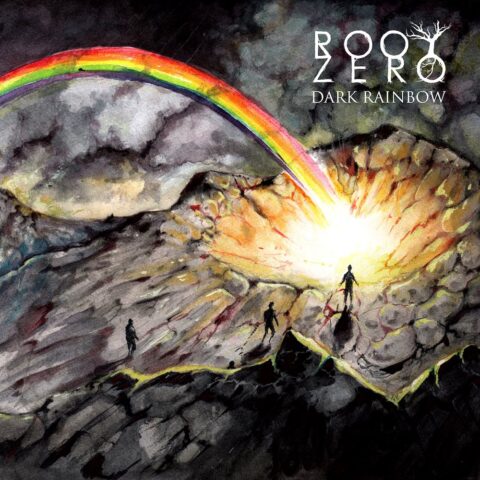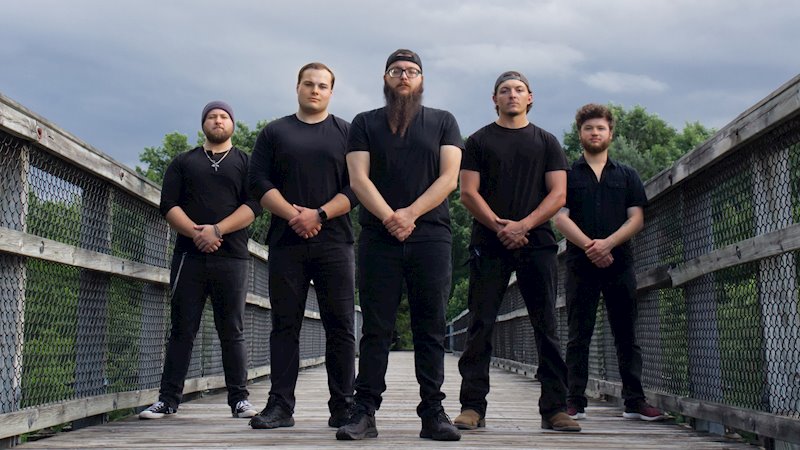Audiences will quickly compare Saturday Church to Moonlight, the 2017 Best Picture Oscar winner which also tells a personal, character-driven story about a boy’s search for self at the intersection of sexual identity and race. While both excel at telling singular stories in this vein, that’s where the similarities end. Saturday Church, for all of its heartbreak, is grounded in a beautiful joyfulness that pervades even the worst moments of the film, lightening their impact and lessening their pain. Inspired by the real LGBTQ “Saturday Church” held by St. Luke’s Art & Acceptance outreach program, writer/director Damon Cardasis crafted a touching, vibrant, fantastical quasi-musical which follows a young boy’s journey of self-acceptance as it potentially costs him everything he holds dear.

Ulysses (Luka Kain) is a quiet, withdrawn boy who’s bullied at school and all-but ignored at home. His father recently deceased, Ulysses looks after his young brother, Abe (Jaylin Fletcher), while his mother, Amara (Margot Bingham), works nights. While the three transition into their new lives, Amara’s sister-in-law Rose (Regina Taylor) helps look after the boys when they’re home from school and their mother works. It’s hard enough to deal with the loss of a parent, but Ulysses also struggles with his gender and sexuality – an issue that puts him at odds with his stringent Aunt Rose who sees his secretive behavior as a sign of weakness and moral failing. One night, with nowhere else to go, Ulysses finds himself at Saturday Church, a one-night-a-week gathering of lost souls whose communal spirit slowly draws out the part of Ulysses he’s feared, enabling himself to finally accept who he is.

Every scene, every moment in a film conveys something. Emotion, motive, intent, and meaning are all on display before you. It comes in the perpetual scowl upon Rose’s face in her initial appearance, the preacher’s sermon that opens the film during the funeral for Ulysses’s dad that speaks of cataclysmic change, and from the way the opening text morphs from dull wintery shades to the vibrant hues of spring. Cardasis wants us to know that Saturday Church isn’t about coming of age, but is about coming into proud acceptance of truth. That’s what makes Saturday Church such a profound experience: we’re not watching Ulysses discover his sexuality or gender identity, we’re watching him struggle to understand his place in the world as someone who knows who they are. That’s more terrifyingly frustrating than just growing up. As Cardasis shows us, Ulysses is desperate for some semblance of belonging in the world – which is masterfully portrayed by Kain – shut out as he is at home and at school from interpersonal connections. Combining this with being gated off from the LGBTQ community he knows so little about, Ulysses’s filters his everyday reality through his vivid imagination to bring out the version of the world he thinks he sees (more on this later) until he gains the confidence to finally take action and create it.

The authenticity of Saturday Church rarely feels at odds with the desire to project happiness or peace for Ulysses. Audiences are likely to view some characters as villains – Taylor’s Aunt Rose certainly is setup that way with her scathing looks, demeaning tone, and insular worldview – which will lead some to assume that the group ushering Ulysses into the LGBTQ community are the heroes; in all actuality, they are people trying to survive. It’s a realistic touch to a film that embraces the flamboyant, colorful side of the community as an entry point for the rudderless Ulysses. This is particularly significant as the musical-side of Saturday Church becomes more and more prominent. At first, it appears as a beautifully choreographed non-lyrical moment between Ulysses and his school-based abusers. Later, it takes the form of several beautiful songs – co-written by composer Nathan Larson (Weiner-dog/Boys Don’t Cry) and Cardasis – sung by Ulysses and his Saturday Church inductors, which Ulysses imagines as a means of better understanding the subtext of their conversations. These songs are not anthemic roof-raisers but are a glimpse into the reality of the LGBTQ existence. Soulful, loving, pain-stricken, yet unyielding, the songs of Saturday Church won’t so much ring in your ears as live in your heart, beautifully conveying the continuous struggle that Saturday Church attendees endure to live their truth.

A compelling narrative, purposeful cinematography, and engaging music make up 75% of what makes Saturday Church work, but it’s the performances that make it memorable. Kain’s quiet, yet hopeful performance as Ulysses is award worthy as he balances both the inward and outward communication that makes Ulysses feel like a whole person even when he appears shattered. Bingham and Taylor have the tough jobs as mother and aunt who want what’s best for Ulysses. Bingham’s softness is a wonderful countermeasure against Taylor’s coldness, while neither feel like caricatures at either end of the spectrum. These two, along with Fletcher, make up Ulysses’s tumultuous home life and create the foundation for the journey, but it’s the world of the Saturday Church that brings Ulysses peace.

Fleshing out that world is Mj Rodriguez (Luke Cage) as Ebony, Marquis Rodriguez (Iron Fist) as Raymond, Indya Moore (Pose) as Dijon, and newcomer Alexia Garcia as Heaven. A chance meeting at a pier creates the opportunity for these four to bring Ulysses into the community he desperately wants to join, yet lacks the understanding of how. Each of the four are neither parody nor lampoon. Through the performances of each actor, these characters are as real as anyone – trampled a bit by life, yet refusing to falter under anyone’s boot heel. Whether Cardasis intended them to be or not, each of these characters represents a path that anyone in the LGBTQ community can tread and still come out of it ok. If I were to acknowledge one slight failing for Saturday Church, it’s that while Cardasis blends the reality of the world beautifully with Ulysses’s vivid imagination, the story takes its time setting up all the characters in both worlds, then seems to sprint to the end. When the struggle becomes real for Ulysses, that’s not the time to rush. For all the time Cardasis takes to build up a real world full of consequences and choices, seeing the truth of it play out for Ulysses would be far more powerful than what does happen.

In the end, Saturday Church is a powerful, beautiful film about accepting your truth. Not just becoming aware of who you are, but finding the strength to affirm your truth, whatever it may be. Cardasis spent time working with St. Luke’s outreach program and heard many stories of the disaffected and disenfranchised youth whom society had largely deemed as egenerate less-thans. For these individuals, acceptance typically comes in the form of personal sacrifice. That’s the crux of Damon Cardasis’s Saturday Church; the story of a boy who knows who he is, but doesn’t know the right way to live his life courageously. We’re all in search of something, and with a story like Saturday Church, Cardasis may just empower someone else can find their way to live courageously, too.
Final Score: 4.5 out of 5.
[youtube= https://youtu.be/IAra4mxDRYs]
Find the latest details on Saturday Church on Facebook | Twitter | Instagram | Website.
In theaters January 12, 2018 and available for streaming on iTunes and Google Play.


























